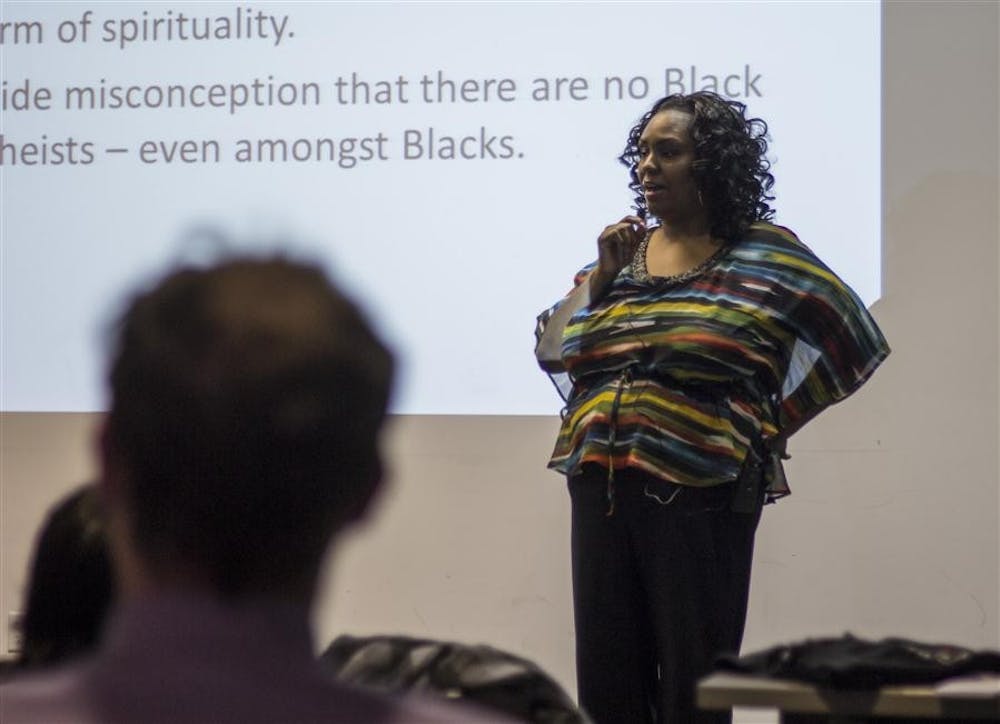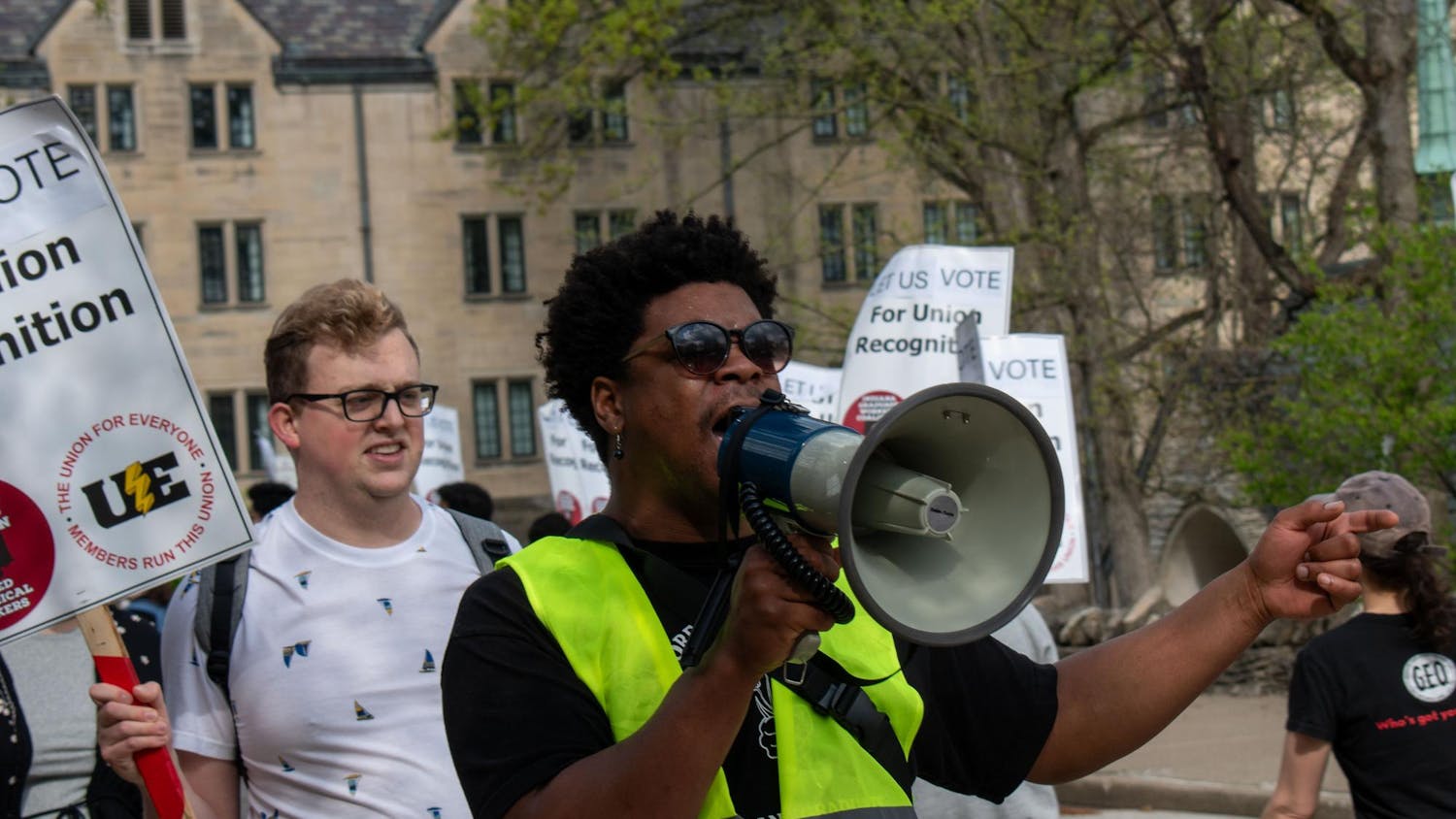When Mandisa Thomas asked the small, diverse audience how many black atheists they knew, only one black student raised his hand. He went on to state he had only one friend he knew was atheist.
Thomas, the current president of the Black Non-Believers organization, visited IU to talk to students about an issue that is nearly taboo in the black community: atheism.
In her seminar, “Don’t just talk about it, be about it: Secular Efforts in the Black Community”, Thomas presented the common misconception in America that it is impossible to be a black atheist. Thomas named well-known black intellectuals of the past such as Langston Hughes, and Zora Neale Hurston, as some members of the black community who doubted the structure of religion.
The Black Non-Believers use these people in their billboards to spread knowledge about the atheist community.
Thomas was even featured alongside Hughes in a billboard in Atlanta, the headquarters for the Black Non-Believers. Thomas said their main purpose is to get people out of their shell if they are feeling conflicted in their religion and to inform people about black atheists in America. Thomas said there are misunderstandings between the black religious community and black atheists, humanists and freethinkers.
“The most common misconception is that we don’t believe in anything, that we have no morals, that we’re angry with God ... that we don’t understand ourselves and that we don’t understand God per se,” Thomas said.
She said they can be good people just like everyone else and do everyday things, like go to movies, bowl and socialize. They just don’t affiliate with any religion.
According to a Pew Research Center study done in 2007, 87 percent of African Americans described themselves as being a part of some form of religion. As studies show, African Americans are the most religious out of any of the racial or ethnic minorities in America. Thomas said this is mostly due to the strong sense of togetherness and political agency in black churches during slavery and the civil rights era.
Thomas said she believes it is important for black atheists and black religious communities to come together to solve disparities in their communities.
“Many of us care about our communities, we care about our families, we want to see everyone do well,” Thomas said. “But sometimes the issue of religion does get in the way. If you don’t believe in God, then it’s supposed to be tantamount to not being black at all. I think that once we get past this idea that you must believe in a God to be good, then we can work together to solve our communities’ problems.”
Jessika Griffin, president of the Secular Alliance at IU, said she invited Thomas to speak because she felt the black community needed more awareness about
atheism.
“I was really feeling like we have a pretty cool black population at IU, and at the same time, blacks, especially black females, are the most likely to be religious,” Griffin said. “And that made me think, if you’re the one person who is doubting religion or is an atheist, and you don’t have anybody else, that’s a really hard position to be in. So I wanted to make an effort to say that black atheists exist. There are whole movements for that, so people on campus could feel like they had an outlet.”
Black Non-Believers discuss atheism

Get stories like this in your inbox
Subscribe



